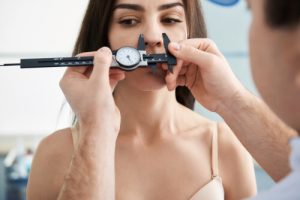When it comes to improving our looks, we always think and focus our attention on what happens during any cosmetic procedure, as well as how the results would look like. What we do not give much attention to is how our lives will temporarily change once any surgery is done. Take rhinoplasty, for instance. You may have thought about how you would look like months after the surgery, but have you considered what it would feel like days after your operation? Would it be painful? What restrictions and limitations should you expect? Can you go back to work immediately? It would not make your discomfort go away, but it would be nicer if your doctor explained to you in detail what you would need to expect during your nose job recovery. Here, AU Rhinoplasty Sydney will give you an idea of how your nose job recovery would look like days, weeks, or months after the surgery.
Nose Job Recovery: The Procedure
Your doctor may have mentioned to you the process with which he will perform the specific changes to the shape, size, angle, and contour of your nose. He may use internal incisions only (closed technique) so that no scars or postsurgical marks may be noticeable, or he may need an extra incision outside the nose in between the base of your nostrils (open technique) so he can visualise and manipulate your nasal structures better. Your nose reshaping may need to transplant or make use of a bone, skin, or cartilage to straighten your nose or to create the perfect height, or your doctor may opt to use silicone implants instead. After all the surgical manipulations, your incisions will be carefully sutured close, nasal splints and packs would be inserted to help with the drainage and support the newly shaped nose, and your nose will be covered will gauze dressings and bandages to protect it.
Nose Job Recovery: The First Week
Day one of your nose job recovery is the expectedly the most uncomfortable, with the soreness and other post-surgical effects you may be feeling. Your nose is still swollen, and it will continue to be that way until maybe after 2 to 3 weeks. Bleeding is a post-op consideration of why your doctor slipped on nasal packs so that it can be drained. You can expect the there will be bruising around the nose that may extend into the circles of your eyes. Nasal congestion, headaches, and numbness around the tip of the nose are still some common post-op effects that patients worry about. These, too, will subside after a week or so.

Let your bandages, nasal packs, and splints stay on your nose until the doctor removes them. They are placed there not only to protect the nose but also to facilitate drainage and act as support to your newly-shaped nose. You are prohibited from returning back to work as soon as the surgery is done, and your doctor would advise you to stay off work for two weeks so that complete recovery will be ensured without further complications. Activity restrictions and limitations will also be enforced so that no untoward force or pressure would be affecting the nose. Although patients typically resume daily light activities a week after the surgery, they are still encouraged to continue limiting their physical activity for up to a month.
Nose job recovery: The Second Week and so on
You can expect that all your discomfort may be reduced during this time. The bruising, soreness, numbness, and bleeding may be completely absent after two weeks, and your nasal bandages may be removed during this time. You can somehow see the postsurgical effect of your nose job surgery, but because the swelling is still there, you can anticipate that the final results of your nose job can be better appreciated after six months to a year. This is because swelling after rhinoplasty will somehow continue to persist for at least a year.
Nose job recovery quick tips
Here are some reminders that we can give you to make sure that you can recover faster and safer after your nose job surgery.
Listen to your doctor. You can rely on a lot of online articles about rhinoplasty in general, but your doctor’s instructions are directed towards your own recovery.
Know your body. You know what you are capable of, so when you perform activities that make you uncomfortable, stop! Consider what your body is telling you whenever you are doing exercises or daily activities.
Position your head correctly. When sleeping, lie down straight on your back. Elevate your head while sleeping and do not lie on your side so as not to displace your newly-shaped nose.
Rest. Do not force yourself to go back to work in the first week. Pressuring yourself to perform more than you can would aggravate the discomfort that you may be feeling during the first week, and may present complications that would even prolong your nose job recovery.
Eat healthy. Making sure that your body is healthy will help you fight infections. It can also affect your healing process positively.



Recent Comments